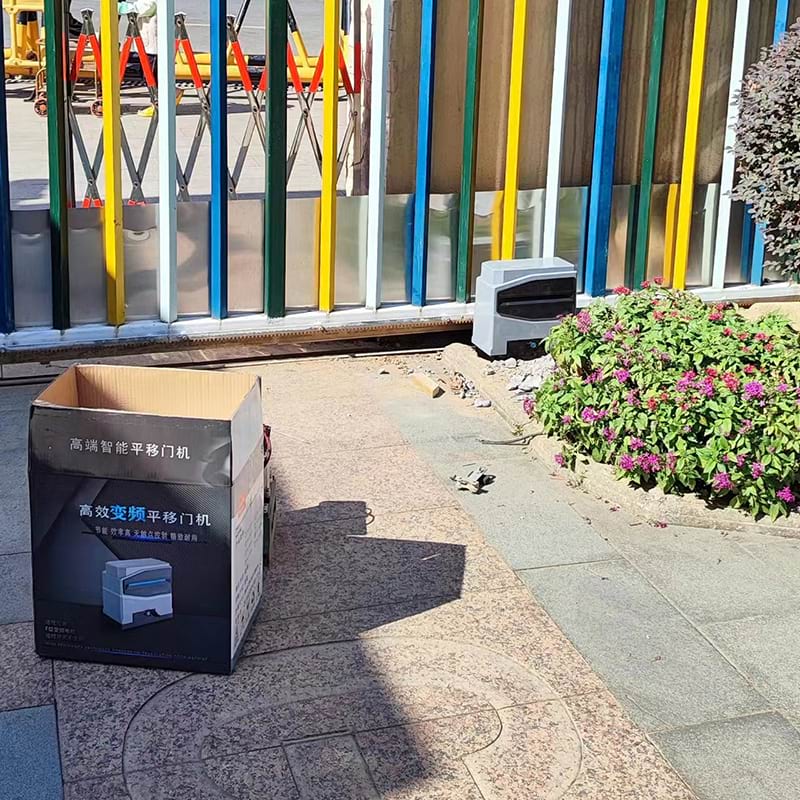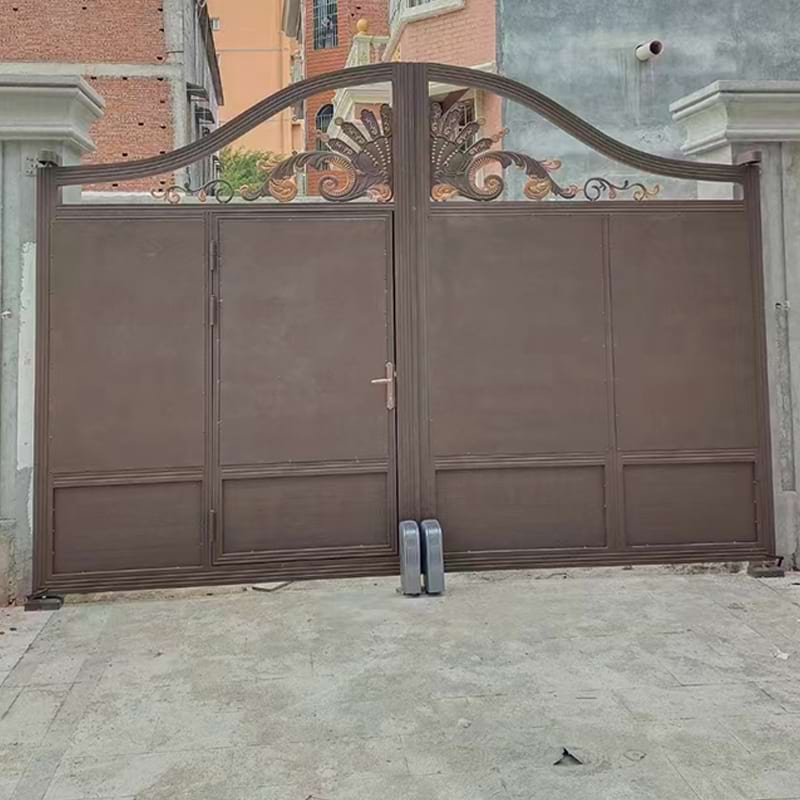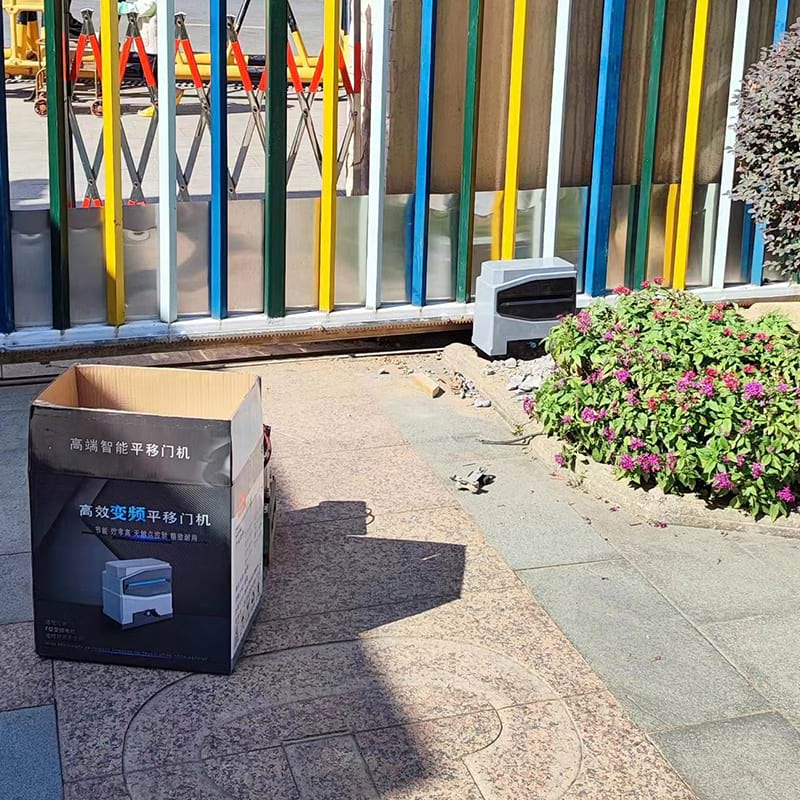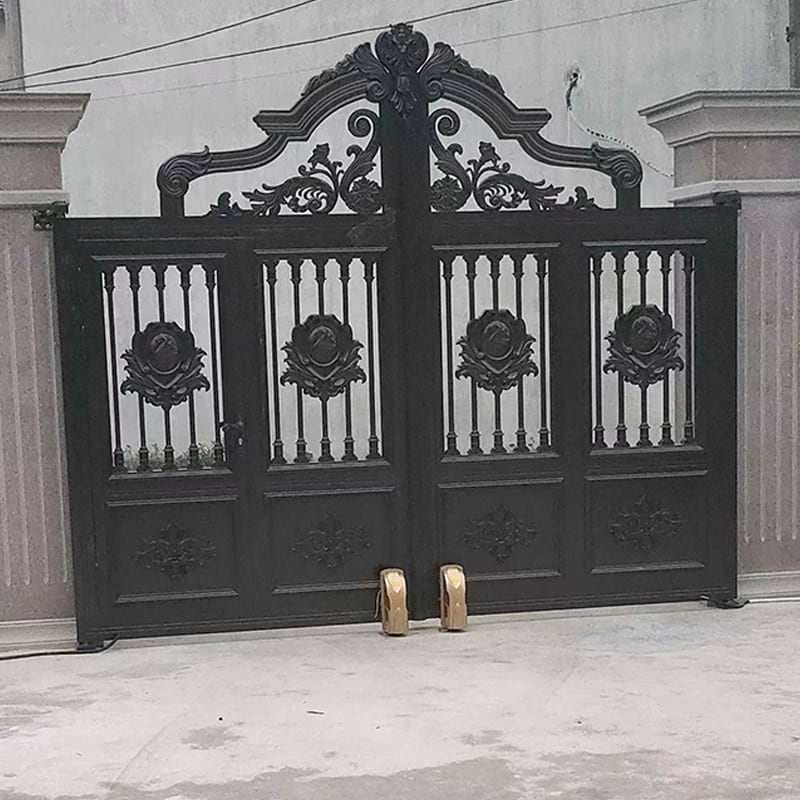Electric gate openers provide a convenient and secure way to access your property, whether it's a residential driveway, commercial building, or even an industrial complex. With various types of electric gate openers available on the market, selecting the right one for your specific needs can be a challenging task. Factors like gate type, power source, security features, and additional functionalities need to be considered. Here’s a guide to help you choose the ideal electric gate opener for your property.

1. Understand the Type of Gate You Have
The first step in selecting the right electric gate opener is to determine the type of gate you have, as different openers are suited to different gate styles. There are primarily two types of gates to consider:
Swing Gates: These gates operate like a regular door, swinging open and closed on hinges. If you have a swing gate, you will need an opener that can handle the weight and movement of the gate when it opens inward or outward.
Sliding Gates: Sliding gates slide horizontally along a track. This type of gate requires a specific opener that can move the gate along the track while supporting its weight and size.
Make sure to choose an opener designed for the specific type of gate you own. Most manufacturers will indicate whether their openers are for swing gates, sliding gates, or both.
2. Gate Weight and Size
The weight and size of your gate are crucial factors in choosing the right opener. Larger or heavier gates will require more powerful openers to handle the load without straining the motor. Before purchasing, measure the dimensions and weight of your gate.
Swing Gate Opener: For heavier swing gates, you’ll need an opener with a more powerful motor. Some swing gate openers are designed for gates up to 16 feet wide and 600 pounds, while larger, industrial models can handle gates up to 24 feet or more and weigh thousands of pounds.
Sliding Gate Opener: For sliding gates, be sure to check the maximum gate weight and length capacity of the opener. Sliding gate openers tend to have a wider range of power options, depending on whether your gate is light or heavy-duty.
3. Power Supply: AC vs. DC
Electric gate openers are typically powered by either an AC (alternating current) or DC (direct current) power source. Understanding the difference can help you make the right choice.
AC Openers: AC-powered openers are generally more powerful and more reliable for heavy-duty gates. They are often used in industrial or commercial applications. However, they require a steady electricity supply and do not perform well during power outages unless supplemented with a backup power system.
DC Openers: DC openers are more energy-efficient and can operate on battery backup systems. These openers are ideal for residential use and gates that may need to function during a power outage. They tend to be quieter and have smoother operation compared to AC models.
If you live in an area prone to power outages, consider a DC opener or one with a backup battery system for added convenience.
4. Automation Features
Modern electric gate openers come with a variety of automation features that can enhance convenience and security. Some of the common features to look for include:
Remote Control Operation: Most electric gate openers come with a remote control that allows you to open and close the gate from inside your car or home. Some systems also offer smartphone control, allowing you to operate the gate remotely via an app.
Automatic Closing: Many openers come with automatic closing features, so the gate will close automatically after a specified amount of time. This is especially useful for maintaining security and preventing the gate from being left open unintentionally.
Safety Sensors: Many openers include safety sensors that prevent the gate from closing if an object or person is detected in the gate’s path. This feature is important for safety, especially in households with children or pets.
Battery Backup: If power loss is a concern, look for an opener that has a built-in battery backup. This allows the gate to continue functioning even during a power outage, ensuring continuous access.
Intercom or Video Integration: For added security, you might consider a gate opener system that includes intercom functionality or integrates with a video surveillance system, so you can see and communicate with anyone at the gate before granting access.
5. Security Features
Security is one of the main reasons people install electric gates. Here are a few features to look for in terms of security:
Rolling Code Technology: Some openers use rolling code technology, which changes the access code every time you open or close the gate. This makes it much harder for someone to intercept and copy the code to gain unauthorized access.
Keypad Entry: Many systems offer the option to install a keypad where visitors can enter a code to open the gate. This is an additional layer of security, especially for controlled access to certain areas of your property.
Locks and Deadbolts: Some gate openers come with integrated locks and deadbolts that automatically lock the gate after it closes, providing an added layer of physical security.
6. Weather and Durability Considerations
Since your gate opener will likely be exposed to the elements, it’s important to choose a model that is weather-resistant and durable. Look for an opener that is designed to handle extreme weather conditions, such as heavy rain, snow, or high winds.
Weatherproof Enclosures: Ensure that the opener’s control box is housed in a weatherproof enclosure to protect it from moisture and dust.
Corrosion-Resistant Materials: The opener should be constructed from materials resistant to rust and corrosion, such as stainless steel or high-quality plastic.
7. Installation and Maintenance
Some gate openers are easier to install than others, especially if you opt for a DIY model. However, complex systems or commercial-grade openers may require professional installation. Keep in mind the costs of installation, especially if it involves electrical work or customizing the setup for your specific gate.
Routine maintenance is also important for ensuring the longevity of your electric gate opener. Look for a model that requires minimal maintenance and comes with easily replaceable parts.
Conclusion
Choosing the right electric gate opener involves considering the type, weight, and size of your gate, along with the power source, security features, and automation options. By evaluating your specific needs, budget, and the features that will best suit your property, you can find a gate opener that enhances both convenience and security. Whether you’re installing a gate for residential or commercial purposes, understanding these key factors will help you make an informed decision and ensure reliable operation for years to come.





